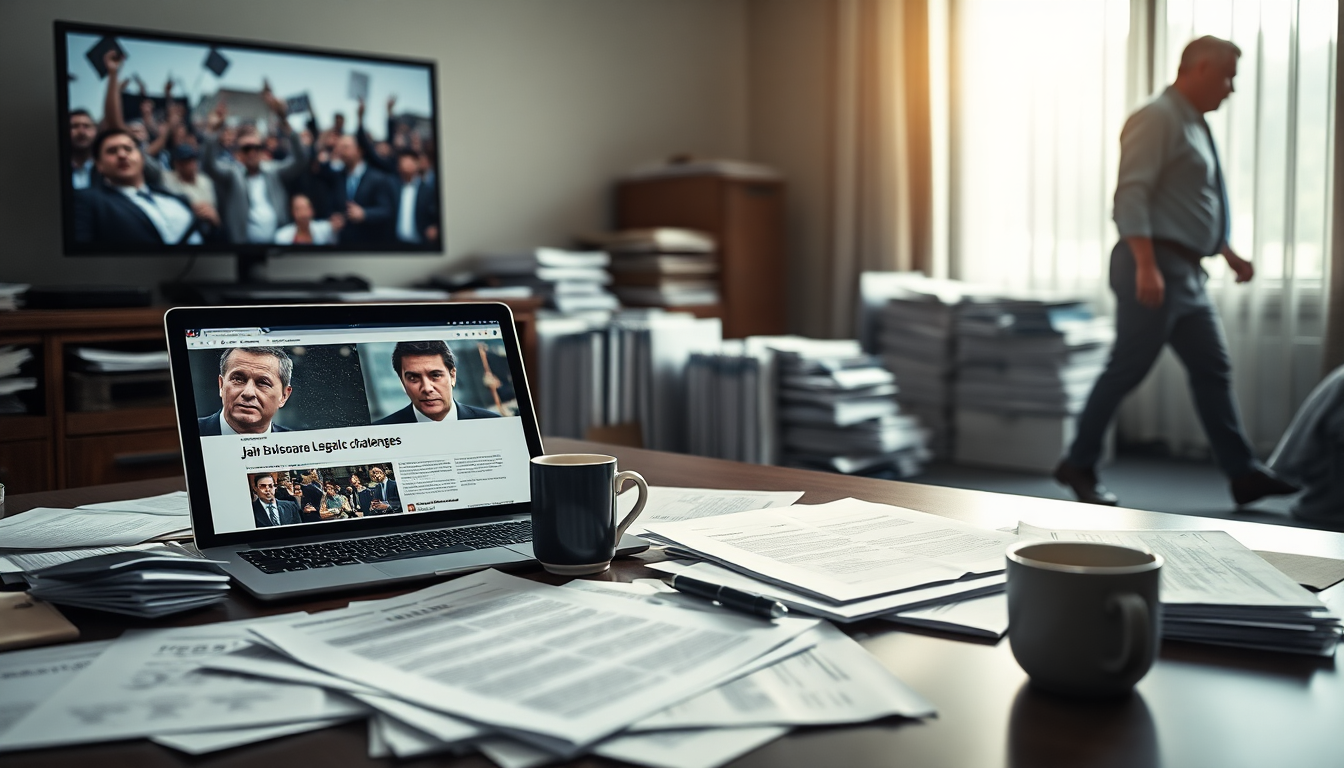Table of Contents
The political scene in Brazil is in turmoil as former President Jair Bolsonaro grapples with a series of legal challenges that could shake things up in ways we haven’t seen before. Just recently, authorities decided that Bolsonaro must wear an ankle monitor—a move he called a ‘supreme humiliation.’ This decision came after federal police conducted extensive searches at his home and the headquarters of his political party, all in line with a ruling from the Supreme Court.
It’s a situation that reflects the ongoing political tension and legal scrutiny Bolsonaro has faced since losing the election in 2022. So, what does this mean for him and the country?
Legal Restrictions Imposed on Bolsonaro
The Supreme Court’s ruling has not only restricted Bolsonaro’s movements but also placed significant limits on his ability to communicate.
He’s now prohibited from talking with foreign diplomats or even going near embassies. To add to that, he can’t use social media or reach out to individuals currently under investigation—including his son, Eduardo Bolsonaro, who is a notable figure in Brazilian politics and has ties to former U.S.
President Donald Trump. These restrictions signal just how serious the allegations against him are, with claims that he orchestrated a coup attempt to overturn the 2022 election results.
Bolsonaro hasn’t taken this lying down. He’s expressed his outrage, claiming he never intended to flee Brazil or seek asylum in an embassy.
His public comments resonate with a sense of victimhood and defiance, framing the legal actions against him as politically charged. This discourse has sparked intense debate across Brazil, with opinions sharply divided along political lines. How do you see the legal system’s role in politics?
International Repercussions and Political Alliances
The unfolding drama is not just a local issue; it has caught the attention of the international community, particularly in the United States. Former President Trump has jumped to Bolsonaro’s defense, calling the Brazilian legal actions unjust. His remarks, including demands for the trial to stop, highlight the close political ties between the two.
Plus, Trump’s decision to impose a 50% import tax on Brazil—allegedly tied to Bolsonaro’s legal troubles—adds another layer of complexity. What influence does international politics have on domestic issues?
As Bolsonaro’s trial continues, it will be interesting to see how these international dynamics shape Brazil’s political landscape. Observers note that his connection to Trump could significantly sway public opinion and political conversations, especially among Bolsonaro’s supporters, who often view the trial as part of a broader attack on conservative values in Brazil.
Implications for Brazilian Democracy
The legal battles surrounding Bolsonaro have reignited conversations about the strength of Brazilian democracy and the rule of law. Critics argue that this trial underscores a worrying trend where political figures face serious legal consequences for their actions while in office. Justice Alexandre de Moraes, who is overseeing the case, has pointed out that the actions of Bolsonaro and Eduardo could constitute serious offenses, including coercion and obstruction of justice. These charges carry weighty implications, potentially setting a precedent for how political accountability is approached in Brazil.
Supporters of Bolsonaro, including many within his political party, have branded the investigations as politically motivated persecution. This narrative resonates deeply with his followers. The ongoing tug-of-war between accountability and perceived victimization highlights the volatile nature of Brazilian politics, where legal proceedings often intertwine with public sentiment and political loyalties. What do you think—can the legal system truly be impartial in such a charged environment?





